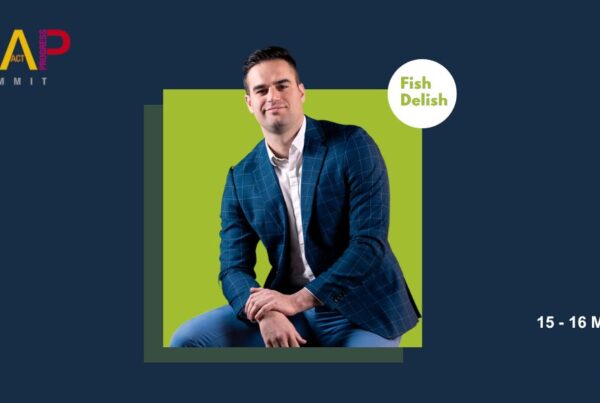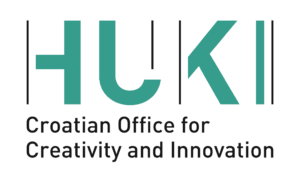For the future of banking topic, we made an interview with Irena Basic Stefanic, Head of Human Resources and Miljenko Graovac, Head of Digital Channels from Raiffeisen Bank.
LEAP: How much has banking changed in the past 10 years?
Irena Basic Stefanic: The world is not the same anymore, which goes for all available services, including banking. The bank is available to clients with the one click of a mouse or touch of a screen on your mobile device. This means that these services, as well as the bank itself, are available 24 hours a day, 7 days a week and 365 days a year. Can you imagine how much it changed in 10 years?! Beside their availability, the services and products are adapting to the new digital age, which requires new knowledge and skills. Skills that didn’t even exist until a few years ago. Furthermore, many supporting processes and other programs of modernization are developing along with digital banking; such as the use of artificial intelligence, robotics, developing automatized chats, cognitive computing, the Blockchain technology, big-data systems, voice biometrics, agile teams etc. These are only some of the processes arising from the modernization and digitalization of banking, and we’re only just starting, so we can only imagine what to expect in the near future.

LEAP: Digitalization is key these days, and RBA is among the first to bring the unique mobile banking ‘RBA na Dlanu’ to the market. What kind of know-how do banks expect from their employees in the digital age?
Irena Basic Stefanic: When we talk about the technology of work in modern banking, we aren’t talking about a ‘boring’ industry anymore. The changes in technology are significant and differ in many ways from the technology used just a few years ago. That is the reason banks today attract young people, millennials and persons from the IT sector and the STEM area in general. However, we don’t mean just mathematicians, statistical analysts, and programmers, who have been finding their niche in banking for many years now, but also whole new profiles of knowledge and skills which, not so long ago, were not necessary for employment in banking. Except for IT experts or developers, we need the knowledge and skills from social fields of expertise which are upgraded with the understanding and agile use of digital technologies. From the employees we hire and further develop, we expect an understanding of the entire client experience, the demands of communicating with a client, and familiarity with contemporary tools and work processes. We need all of this to successfully create our products, services and develop long-term client relations.
LEAP: By developing digital banking, all the supporting processes and other programs of modernization develop as well. What kind of changes can we expect in the near future?
Miljenko Graovac: Next year, the PSD2 regulations will be put into full effect. We believe that it is just the first step towards Open Banking, but many things will be set and defined within the next year in that sense, including the potential arrival of new actors in the financial market as well as additional growth of the FinTech community. We should especially mention the possibility of introducing the so-called ‘Instant Payment’ which, combined with PSD2 and GPRS regulations, has the potential to create a whole new ecosystem in finance. Additionally, we expect that even more attention will be dedicated to the possibilities of doing banking tasks from home, including things like opening an account, signing contracts and so on – so the technologies which support it will be front and center. Finally, continuing current trends, there will be a lot of talk about AI, machine learning, automatization, and Blockchain, which could find real commercial uses in this new ecosystem.

LEAP: Persons from the IT sector and the STEM area, in general, are increasingly aware of the developmental opportunity with employers who offer a continuing development of knowledge. What kind of opportunities does RBA offer them?
Miljenko Graovac: We at Raiffeisen have two shining examples of cooperation with FinTech companies or startups. Recently our headquarters started a project Elevator Lab, through which we attracted startups to present their projects to the financial industry, so we continued cooperation with the best ones. There’s also the example of Elevator Ventures, a company that aims to invest in newly founded FinTech businesses. We develop such an approach in the local market too and we are delighted by the dynamics that offer our employees the opportunity to properly develop their skills and experiences. Of course, the employee is required to show initiative, willingness to learn and thinking outside of the usual framework of the profession or their position. We are eager to get to know all of those in our RBA team who feel they fit some of these characteristics, and to the best ones we give a chance to build a modern, technologically advanced bank together, that creates a specific, positive and recognizable user experience.
LEAP: How much does RBA invest in the modernization of processes and the development of additional digital and unique IT solutions?
Miljenko Graovac: Currently, we are engaged in everything we’ve listed so far, with more or less intensity. A part of it is being developed in our parent bank in Austria (RBI), and the other part locally. We are changing the way we internally address all these challenges, by applying modern methods of agile development and Design Thinking.







